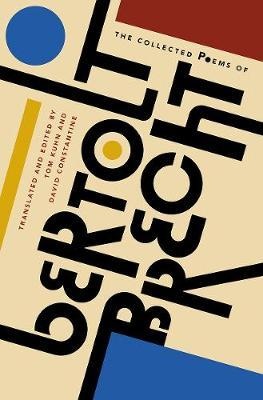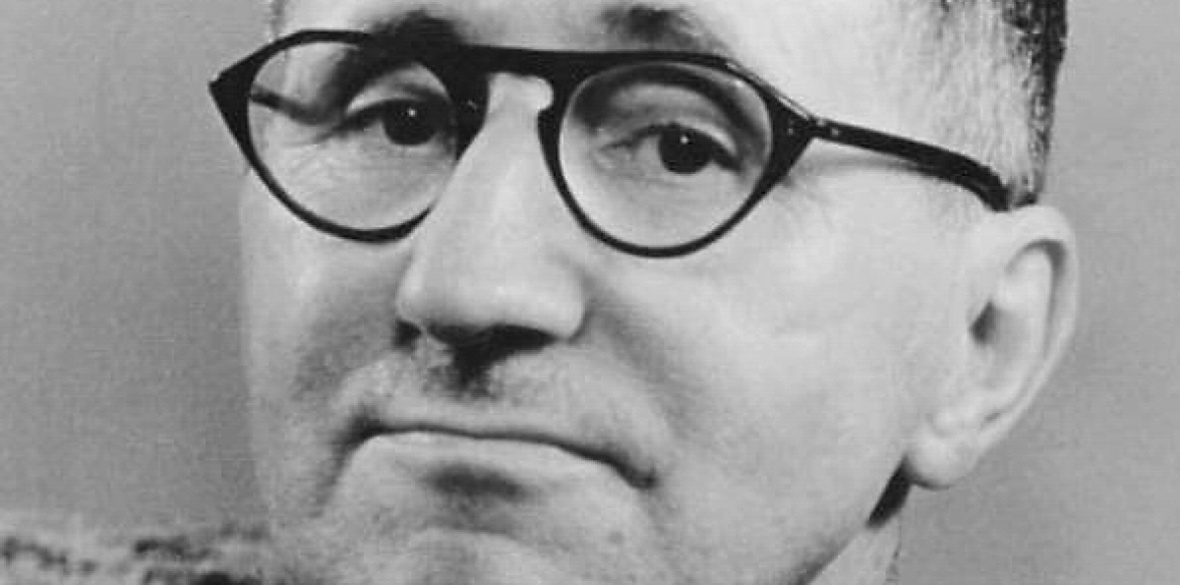This is the last article you can read this month
You can read more article this month
You can read more articles this month
Sorry your limit is up for this month
Reset on:
Please help support the Morning Star by subscribing here
NOT many poets’ reputations can survive the publication of their entire life’s work in a single breezeblock volume.

Even the best can seem repetitious and their finest work diminished alongside weak, juvenile or unfinished poems. Among 20th-century poets, there are only a few who may be said to pass this test and all were communists – Louis Aragon, Pablo Neruda, Nazim Hikmet, Yiannis Ritsos and Bertolt Brecht.
Ask your local library to get hold of a copy of The Collected Poems of Bertolt Brecht (Norton, £35) and you will see what I mean. Translated and edited by David Constantine and Tom Kuhn, this is the most comprehensive English collection of Brecht’s poetry to date.
The book runs to 1,000 pages and includes three times as many poems as John Willett’s big 1976 selection. Many of them are published in English for the first time.
As well as being the author of some of the greatest plays of the last century — The Threepenny Opera, Life of Galileo, Mother Courage and Her Children, The Caucasian Chalk Circle and The Measures Taken among them — Brecht was an incredibly prolific poet. Between 1913 and 1956 he wrote over 2,000 poems and songs, less than half of which were published in his lifetime.
The book of course includes the Buckow Elegies, the Svendborg poems and the Hollywood Elegies and well-known individual poems like In Praise of Doubt, To the German Soldiers in the East, The Infanticide Marie Farrar, The Impact of the Cities, Song of the Machines, Song of the SA Man, Empedocles Shoe, Questions of a Worker who Reads and Tailor of Ulm.
Included too are songs like Alabama Song, Surabaya Johnny, Benares Song and German Miserere — impossible to read on the page without hearing the music of Hans Eisler, Kurt Weil and Paul Dessau which accompanied them.
It is a brilliant collection, full of great poems and memorable lines, among them:
“The exploiters are gathered together/But the exploited are disunited.”
“There wasn’t a handkerchief big enough to save us all from the stench of parade ground bank, pulpit chancellery and grave.”
‘What is the use/up to your chin in shit, in keeping your fingernails clean?”
“Not all that stinks is gold.”
“Because he wanted to live like a human being/He was slain like an animal.”
“The raging stream they call violent/But the river bed that contains it/No one calls that violent.”
“To call for the total overthrow of the present order/Seems a terrible thing./But the present order is no sort of order.”
“All the gang of those who rule us/Hope our quarrels never stop/Helping them to split and fool us/So they can remain on top.”
But the great strength of this collection is that it makes available so many poems previously unavailable in English, notably The Ballad of the Reichstag Fire, Freedom and Democracy and The Koloman Wallisch Cantata, about the 1934 Austrian revolution.
There are epitaphs for Vladimir Mayakovsky, Karl Liebknecht, Walter Benjamin and Paul Eluard, several sequences of love poems for Margarete Steffin and a sequence of late poems adapted from the Polish poet Adam Wazyk, notably Poem for Adults.
One of my favourites is a little 1933 poem: “The lowly grass is overlooked by the storm/When it is morning/It stands erect once more.”
Above all, the book reveals the extraordinary consistency of address, sympathy and range of subject in Brecht’s work over a 40-year period. Even in the earliest, uncollected poems like Workers, French Peasants and Belgian Fields, Brecht was already writing against hypocrisy, cant, sentimentality and the temptations of German Romanticism. His first two books were parodies of Lutheran and Roman Catholic prayer books.
It is a pleasure to watch the young poet learning to write in "Brechtish" – a characteristic mixture of demotic, bar-stool German and wide intellectual reading — especially the influence of Lucretius and Horace.
Unironic and direct, full of certainty and doubt, passion and reason, Brecht imaginatively explored the brothels and bars of the asphalt cities, the Wild West and the alienating city of Mahagony.
And although these poems were written in direct response to the “dark times” in which Brecht lived, the greatness of his achievement is that wise and sad, defeated and defiant, they speak to us in our own dark times.











